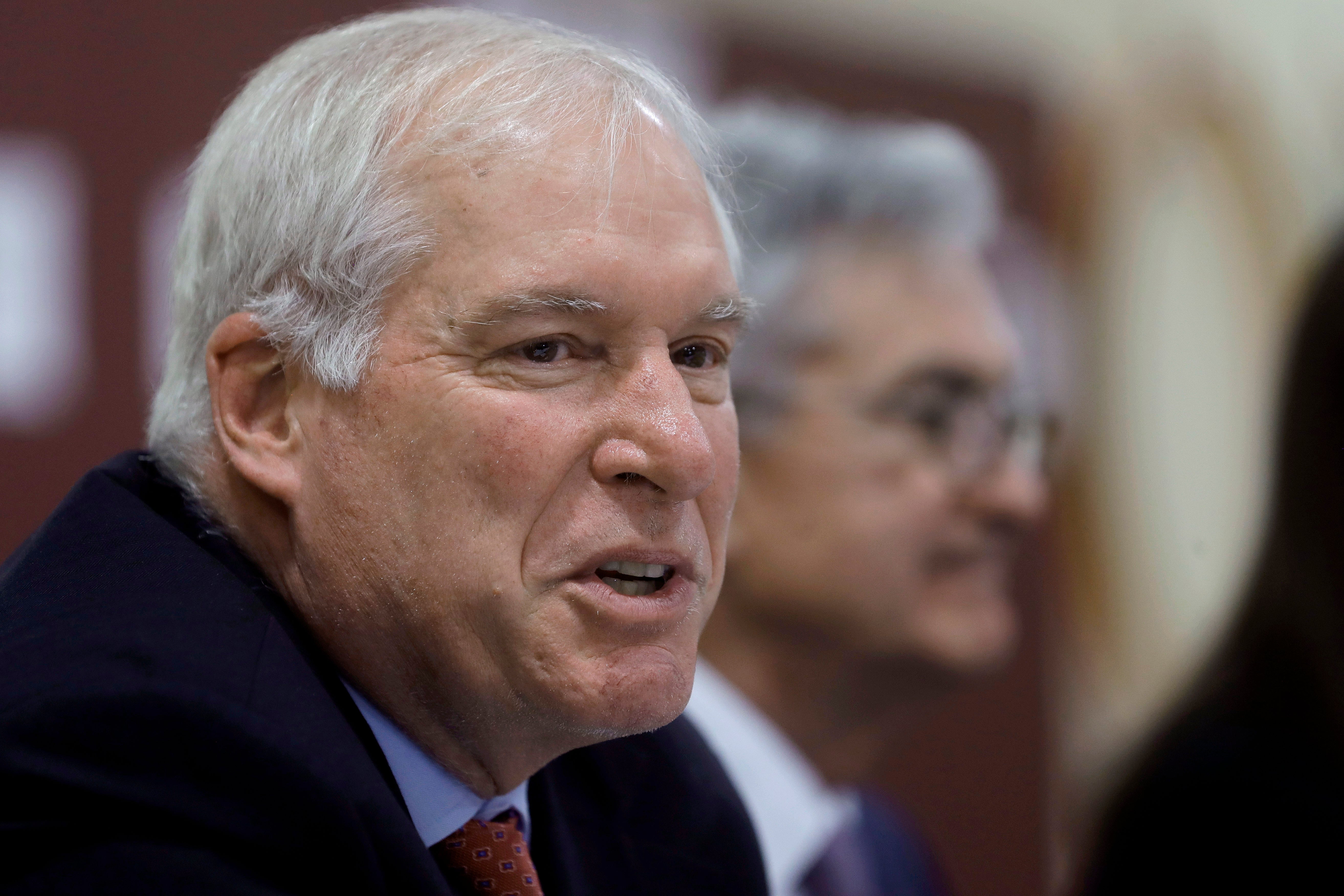Fed leaders agree: Economics has a racial-disparity problem
Top Federal Reserve policymakers underscored their concern that Black and Hispanic people are sharply underrepresented in the economics field, which lessens the perspectives that economists can bring to key policy issues

Your support helps us to tell the story
From reproductive rights to climate change to Big Tech, The Independent is on the ground when the story is developing. Whether it's investigating the financials of Elon Musk's pro-Trump PAC or producing our latest documentary, 'The A Word', which shines a light on the American women fighting for reproductive rights, we know how important it is to parse out the facts from the messaging.
At such a critical moment in US history, we need reporters on the ground. Your donation allows us to keep sending journalists to speak to both sides of the story.
The Independent is trusted by Americans across the entire political spectrum. And unlike many other quality news outlets, we choose not to lock Americans out of our reporting and analysis with paywalls. We believe quality journalism should be available to everyone, paid for by those who can afford it.
Your support makes all the difference.Top Federal Reserve policymakers on Tuesday underscored their concern that Black and Hispanic people are sharply underrepresented in the economics field, which lessens the perspectives that economists can bring to key policy issues.
“If we don’t have a diverse group of people in the field, we won’t have the right topics to focus on,” said Eric Rosengren, president of the Federal Reserve Bank of Boston.
At a webinar sponsored by the Federal Reserve Bank of Minneapolis, the officials and many outside economists addressed the problem on the same day that a study from the Brookings Institution reported that the top ranks of the Federal Reserve system remain disproportionately white, particularly on the boards of the 12 regional Fed banks.
The viral pandemic and last summer's racial justice protests have thrown a national spotlight on longstanding racial and gender disparities within the U.S. economy, with unemployment rates chronically higher for African Americans and Hispanics and levels of wealth, income and homeownership sharply lower. Yet even in that context, economics trails other fields in measures of diversity, the officials noted, and the profession has been slow to address racism as a source of economic inequality.
“Race is a variable that economists are lazy about,” said Raphael Bostic, the president of the Atlanta Fed and the first Black president of a regional Fed bank in the system's 108-year history. "That means we’re drawing conclusions that are often not reflective of reality.”
Ebonya Washington an economist at Yale University, said during the webinar that just 2.8% of economics Ph.D.'s in 2019 were granted to Black students and 5.8% to Latinos. African-Americans earned more Ph.D.’s in mathematics and other scientific fields, she said.
That suggests, she said, that the problem isn't just a question of building a bigger “pipeline” of young students but of making economics more welcoming to African Americans.
“It’s not about solely changing the student to fit into the flawed profession, but let’s change the flawed profession," Washington said.
The lack of diversity results in a narrower range of research. Dania Francis, an economist at the University of Massachusetts, and Anna Gifty Opoku-Agyeman, co-founder of the Sadie Collective, a non-profit that supports Black women in economics, calculate that from 1990 through 2018 the top five economics journals published only 29 papers that explicitly addressed race and ethnicity. That was fewer than 0.5% of all papers published during that time.
Lisa Cook, an economist at the University of California, Berkeley, suggested that the lack of representation is difficult to overcome without more role models in the profession. She praised a summer program run by the American Economics Association for helping address that obstacle.
Young students who participate in the program often say, “This is the first time I've ever had ... a black woman as a professor in an economics class,” Cook said. “We’re not developing, promoting, or tenuring black women ... and that’s true for underrepresented minorities more generally.”
Cook herself has been mentioned as a potential Biden administration choice for the Fed’s Board of Governors, which has one vacancy. If she were nominated and confirmed by the Senate, Cook would become just the fourth Black person to serve as a Fed governor.
The report Tuesday from the Brookings Institution noted that the directors of the 12 regional Federal Reserve banks, who select the banks' presidents, are mostly white men with business backgrounds.
The bank directors “are overwhelmingly white, overwhelmingly male and overwhelmingly drawn from the business communities within their districts, with little participation from minorities, women, or from areas of the economy — labor, nonprofits, the academy — with important contributions to make to Fed governance,” the report's authors, led by Peter Conti-Brown, a financial historian at the University of Pennsylvania’s Wharton School, wrote.
The Minneapolis Fed's webinar on racism and the economics profession was the fifth in a seven-part Fed series that began last fall involving racism and the economy. Previous sessions were held on housing, education and employment.
The series marks a notable shift for the Fed, which historically has viewed its mission as focused narrowly on the economy as a whole, with less concern about specific demographic groups. In 2007, for example, Ben Bernanke, then the Fed chair, gave a speech about inequality that didn't mention race.
“For a long time, the Fed didn't talk that much about inequality, and definitely not about things like race," said Stephanie Aaronson, director of economic studies at the Brookings Institution and a former senior economist at the Fed.